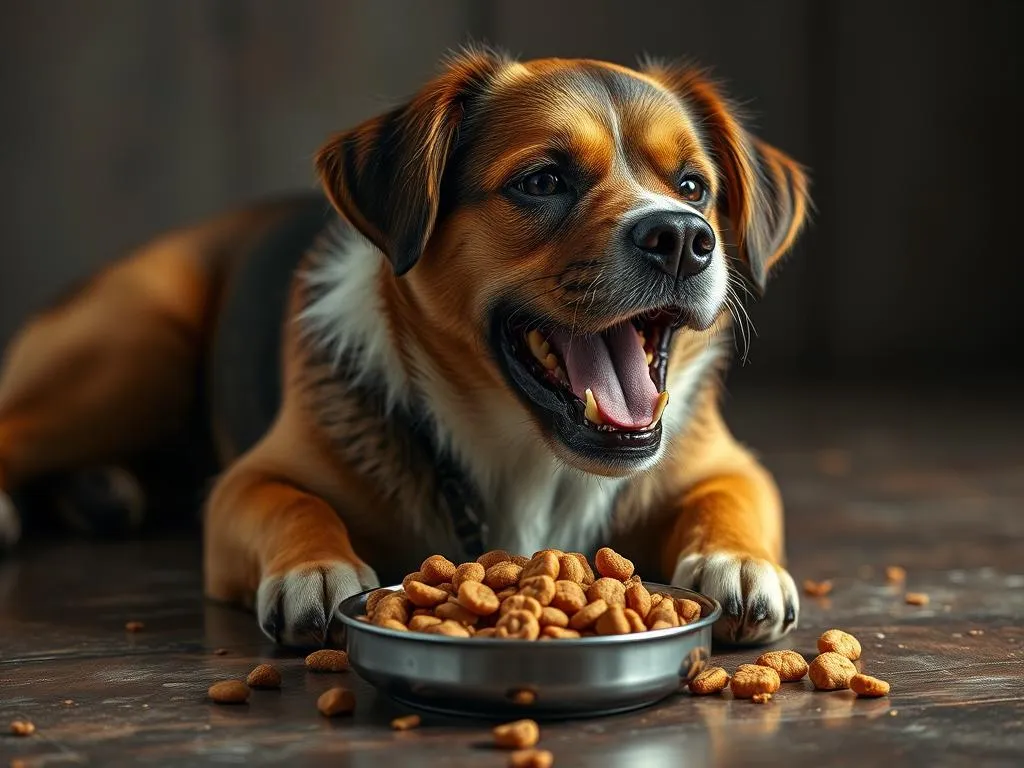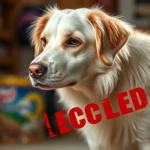
Introduction
Proper dog nutrition is crucial for your furry friend’s health and well-being. Ensuring that your dog receives the right balance of nutrients helps maintain their energy levels, supports their immune system, and contributes to a longer, happier life. However, many pet owners face the issue of leftover dog food. Whether it’s due to over-preparation or your dog’s refusal to eat, leftover food can become a concern. Understanding what to do with leftover dog food is essential for both your dog’s health and the environment. Addressing leftovers effectively can minimize waste and promote a sustainable approach to pet care.
Understanding Dog Nutrition
Essential Nutrients for Dogs
To make informed decisions about your dog’s diet, it’s important to understand the essential nutrients they require:
- Proteins: Vital for growth, repair, and maintenance of body tissues. Dogs need high-quality protein sources such as meat, fish, and legumes.
- Carbohydrates: Provide energy and are important for digestive health. Ingredients like rice, oatmeal, and sweet potatoes are excellent sources.
- Fats: Essential for energy, healthy skin, and coat. Look for good fat sources like fish oil and chicken fat.
- Vitamins and Minerals: Necessary for various bodily functions. A balanced diet should include essential vitamins like A, D, E, and minerals such as calcium and phosphorus.
Nutritional Requirements by Dog Size and Age
Dogs have different nutritional needs based on their size and life stage:
- Puppies: Require more calories, protein, and fat for growth and development.
- Adult dogs: Need a balanced diet to maintain health and weight. Portion control is vital.
- Senior dogs: May require fewer calories but more fiber and specific nutrients to support joint health and overall vitality.
Common Nutritional Myths
There are many myths about dog diets that can lead to misunderstandings. For instance, some believe that dogs can thrive on a vegetarian diet. While some dogs can adapt, most require animal-based proteins for optimal health. Another common myth is that table scraps are acceptable. In reality, many human foods can be unhealthy or even toxic to dogs.
Causes of Leftover Dog Food
Portion Control Issues
One common cause of leftover dog food is improper portion control. Overfeeding can lead to uneaten food, while underfeeding may leave your dog hungry and dissatisfied. Striking a balance is crucial.
Dog’s Preferences and Picky Eating Habits
Just like humans, dogs have their preferences. If your dog is a picky eater, they may leave food uneaten. Experimenting with different flavors or brands can help find what appeals to their taste buds.
Changes in Dog’s Health or Diet
Changes in your dog’s health can significantly affect their appetite. Illness, allergies, or dietary changes can lead to uneaten food. It’s important to monitor these changes and consult your veterinarian if necessary.
What to Do with Leftover Dog Food
Proper Storage Techniques
To prevent spoilage and maintain the quality of leftover dog food, use the following storage techniques:
- Refrigeration: Store uneaten food in the refrigerator and consume it within 3-5 days.
- Freezing: If you have a larger quantity of leftover food, consider freezing it in portioned airtight containers. This extends the shelf life to several months.
- Airtight Containers: Always use airtight containers to prevent moisture and contaminants from spoiling the food.
Creative Ways to Use Leftover Dog Food
Instead of throwing away leftover dog food, consider these creative uses:
- Mixing with Fresh Ingredients: Enhance the flavor and nutrition by mixing leftover food with fresh ingredients like cooked vegetables or lean meats. This can entice your dog to eat.
- Homemade Dog Treats: Get creative and turn leftovers into homemade dog treats. Combine the food with oats or peanut butter, shape them into treats, and bake until firm.
Donating Leftover Dog Food
If you find yourself with a surplus of unopened dog food, consider donating it:
- Local Shelters and Food Banks: Many animal shelters and food banks accept donations. This helps pets in need while reducing waste.
- Guidelines for Safe Donations: Ensure the food is unopened and within the expiration date. Check with the organization for specific donation guidelines.
Composting Leftover Dog Food
Composting is an eco-friendly way to deal with leftover dog food:
- Benefits of Composting: Composting dog food can enrich your garden soil while reducing waste in landfills.
- Safe Composting Practices: Avoid composting meat or dairy products, as they can attract pests. Stick to plant-based scraps and small amounts of dog food.
Preventing Leftover Dog Food
Assessing Portion Sizes
To minimize leftover dog food, assess your dog’s daily caloric needs based on their size, age, and activity level. Use feeding guidelines on dog food packaging as a starting point.
Developing a Feeding Schedule
Establishing a consistent feeding schedule helps your dog recognize meal times, which can reduce uneaten food. Monitor food intake to adjust portions if necessary.
Experimenting with Different Brands and Flavors
Sometimes, finding the right food requires some experimentation. Try different brands and flavors to see what your dog enjoys. This not only minimizes leftovers but also keeps mealtime exciting.
Conclusion
Managing leftover dog food is an important aspect of responsible pet ownership. By understanding your dog’s nutritional needs, addressing the causes of leftovers, and employing creative solutions, you can contribute to your dog’s health and minimize waste. Being mindful of dog nutrition not only benefits your furry friend but also promotes sustainability in pet care.
Frequently Asked Questions (FAQs)
Can dogs eat leftover human food?
While some human foods are safe for dogs, many are not. Foods like chocolate, grapes, and onions can be toxic. Always check before sharing human food with your pet.
How long can leftover dog food be stored in the fridge?
Leftover dog food can typically be stored in the refrigerator for 3-5 days. Always check for signs of spoilage before feeding.
What should I do if my dog refuses to eat their food?
If your dog refuses to eat, assess their health and consult your veterinarian. You may need to try different brands or flavors to entice them.
Is it safe to mix old dog food with new food?
It is generally safe to mix old dog food with new food, but ensure that the old food is still fresh and not spoiled. Gradually transition to avoid digestive upset.









